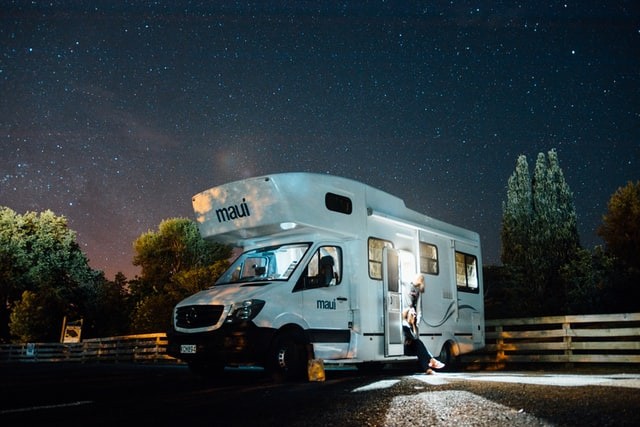
Whether you're travelling the North or South Island, New Zealand offers breath-taking views. Exploring this beautiful country on a driving holiday lets you take it all in at your own pace.
New Zealand is very campervan friendly, with good roads and plenty of camping spots to stop at. If you're a new hand at this, planning can be a bit overwhelming at first. While there's no single right way to take this on, it helps to plan a few key things in advance.
Here are some useful tips for planning your campervan holiday
1. Decide when would be the best time to visit
This really depends on your own preferences. If you enjoy winter sports like skiing, then the winter season is ideal for your road trip. However, if you want good weather on your travels, then summertime is your best bet. Both autumn and spring feature fairly pleasant weather - springtime is filled with beautiful flowers, while autumn showcases spectacular foliage. If you're interested in spotting some incredible wildlife off the coasts, make your way to Kaikoura. It's a well-known whale and dolphin watching region. December to March is orca spotting season, while June and July are good months to see humpback whales. Dolphins can be seen practically every day in this area.
2. Map your routes and stops beforehand
It's best to mark out your route and rest stops in advance so you can plan your fuel consumption and refills as well. Calculate how long it would take you to make it to each destination and mark fuel spots along the way. If you're depending on apps for this, be sure to download the offline versions of the maps as well. You may lose cell signal and you don't want to be stranded.
3. Plan for off season travel
Around major holidays like Christmas or in the summer when schools are out, you will run into big crowds and higher prices. You will also have to book your campervans months in advance and your spots in holiday parks as much as six months beforehand. Off-season travel will mean that you can avoid these hassles and plan with a smaller budget. However, it's always safer to make bookings in advance in case everyone else has the same idea.
4. Make a rough itinerary
While it's great to go with the flow and follow the road wherever it takes you, having some kind of a plan is useful. You don't want to miss out on seeing any sights or special attractions just because you didn't prepare for it. Many of the touristy spots get sold out pretty quickly, so it's wise to book these in advance, but there are plenty of places and activities that are free to visit, such as museums and some cultural events in big towns. You can look up how much the activities cost online in order to budget for them.
5. What does your campervan include?
Read the fine print so you don't have any surprises with your bill and ask about the facilities that are included in your campervan. Does it have towels or sheets? Are some pots and pans included? How about furniture like fold out chairs and tables? Campervans generally have basic amenities, but making sure in advance will allow you to plan better and minimise spending. For more information on your options visit Wilderness Campervan Rentals.
6. Camp out with friends and family
Few things beat the simple joy of a cool beer and a barbecue under the stars with your mates. If you're travelling in good weather, this is an excellent activity to include in your plans. If you want to freedom camp, make sure you choose a spot where you're legally allowed to park your campervan for the night. Stock up on food, water and gear in advance to ensure a comfortable experience.
7. Plan your big costs
Small, unexpected expenses may come up every now and then, but prepare for the big bills. Depending on your route and destination, your fuel costs are likely to be one of your biggest expenses. The cost of the campervan is another factor to consider. And you don't want to be caught without insurance, so make sure you have the necessary paperwork. There are some camping grounds that are free, but every now and then you may have to stop at a holiday park or pay a nominal fee at a camp run by the DOC (Department of Conservation)- account for these expenses. Also, always have an emergency fund.
8. Eating in saves money
Your diet can still be simple and healthy while you're on the road. All you have to do is keep a fridge stocked with the essentials and remember to restock whenever you reach a town. Simple salads, sandwiches and pastas made in your functional campervan kitchen go a long way towards cutting down your expenses. This leaves more money in your budget for the occasional splurge at a must-try restaurant along the route.
© 2026 NatureWorldNews.com All rights reserved. Do not reproduce without permission.





